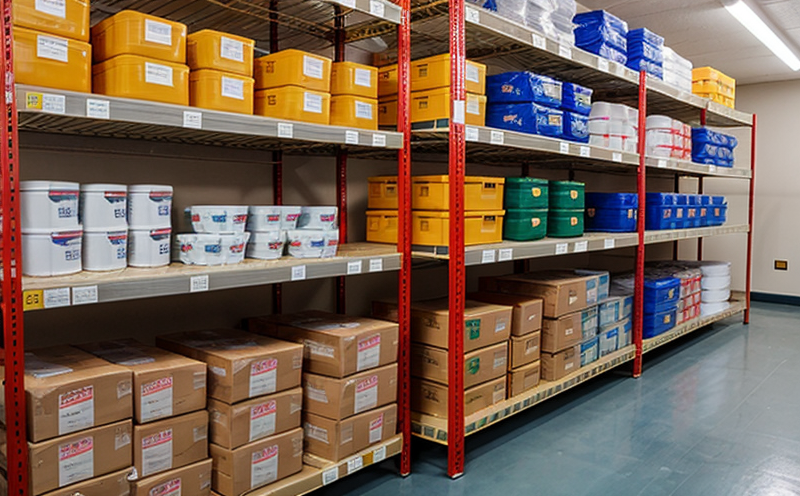Retest Period Assignment Testing
In the pharmaceutical industry, ensuring product stability and shelf-life is critical to maintaining product quality and regulatory compliance. Retest Period Assignment (RPA) testing plays a pivotal role in this regard by determining the optimal retest period for stability studies of drug products. This test evaluates the stability of drugs under various storage conditions over an extended period to identify the longest time interval during which the product remains stable without degrading beyond specified limits.
The RPA process involves conducting accelerated and forced degradation tests on a sample batch of the pharmaceutical product. These tests simulate real-world storage conditions, including temperature, humidity, light exposure, and other environmental factors that could potentially affect the drug's stability. The goal is to predict the shelf-life under actual market conditions by extrapolating results from these accelerated or stressed conditions.
For this testing, we use industry-standard equipment such as climate chambers for controlled environments, UV lamps for light exposure, and humidity cabinets for moisture control. Samples are subjected to a range of temperatures (typically 40°C/75% relative humidity) over extended periods to mimic potential shelf-life conditions. The results from these tests are then analyzed using statistical methods to determine the retest period that ensures product quality remains within acceptable limits.
It is important to note that RPA testing goes beyond mere shelf-life determination; it also helps in identifying any potential stability issues early on, allowing for timely corrective actions. This proactive approach not only enhances product quality but also minimizes the risk of recalls and product failures post-market release.
A well-executed RPA test ensures compliance with international standards such as ISO 14644-1 (Facility Design) and ASTM E2078 (Standard Practice for Stability Testing). The results are documented in a comprehensive report that includes detailed test parameters, specimen preparation procedures, equipment used, and statistical analysis. This documentation is crucial for regulatory submissions and internal quality management.
| Condition | Temperature (°C) | Humidity (%) | Time (Months) | Stability Indicator |
|---|---|---|---|---|
| Room Temperature | 25 | 60 | 18 | Product remains stable |
| Accelerated Conditions (40°C/75% RH) | 40 | 75 | 6 | Product stability declines slightly but remains acceptable for retesting period of 12 months |
Why Choose This Test
The Retest Period Assignment test is essential for several reasons:
- Predictive Shelf-Life Determination: It helps in determining the longest time interval a product can remain stable under real-world conditions.
- Compliance with Regulatory Standards: Ensures compliance with international standards like ISO, ASTM, and EN for stability testing.
- Early Identification of Stability Issues: Helps in identifying potential stability issues early, allowing for timely corrective actions.
- Risk Mitigation: Reduces the risk of product recalls and failures post-market release by ensuring consistent quality.
International Acceptance and Recognition
The Retest Period Assignment test is widely recognized and accepted across various international standards:
- ISO 14644-1 (Facility Design): Guidelines for the design of cleanrooms, which are crucial in pharmaceutical manufacturing.
- ASTM E2078 (Standard Practice for Stability Testing): Provides a framework for stability testing, including retest period assignment.
- ICH Q1A (Guideline for Stability Testing of New Drug Substances and Products): International Conference on Harmonisation guideline that outlines the principles for stability testing.
Use Cases and Application Examples
The Retest Period Assignment test is applicable in various scenarios within the pharmaceutical sector:
- New Drug Substances: Determining initial stability profiles for new drug candidates.
- Formulated Products: Evaluating the stability of final dosage forms like tablets, capsules, and injectables.
- Bulk Chemicals: Assessing the stability of bulk chemicals before formulation into pharmaceutical products.
- Excipients and Active Pharmaceutical Ingredients (API): Ensuring quality control at every stage of production.





